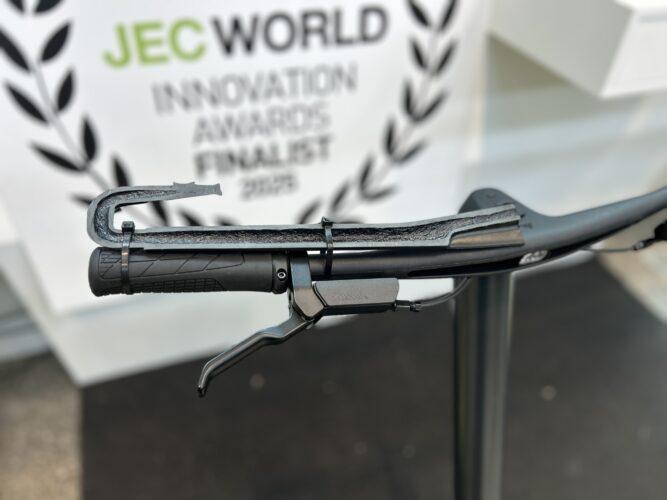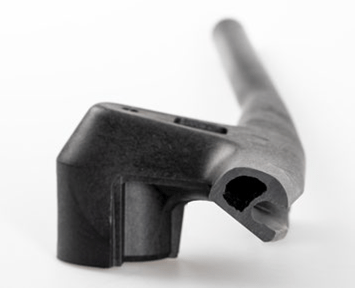Fluidmelt Technology with Continuous Fiber Reinforcement


An innovative plastic-injected handlebar with the same functionality as aluminum—engineered for performance and built for a sustainable future. We believe the future of mobility lies in innovation that balances performance, sustainability, and efficiency. Our newest breakthrough is a mould injection tool designed to manufacture plastic handlebars that meet the demands of the most advanced cycling equipment—while radically improving the production process.
Alongside CANYON and Engel and a network of innovation-driven partners, we are shaping the future of cockpit handlebar design for bicycles. Cutting edge materials are combined with an advanced fluidmelt injection moulding process to produce the innovative cockpit handlebar.
This hollow, high-performance component is made from short glass fiber-reinforced polyamide 6, ensuring exceptional strength and low weight. Carbon fiber tapes are specifically placed in critical areas, reducing deflection under load by up to 10% while maintaining a slim wall thickness. Within the fluidmelt process gas or water is injected and displaces the unsolidified core material, allowing it to be reused within the cycle, cutting both waste and production costs. This novel design of the cockpit handlebar enables the integration of cable routings and ensures a high production efficiency. Compared to conventional aluminum or thermoset handlebars, this innovation reduces the CO₂ footprint by up to 80%. A durable, recyclable, and local-for-local production solution – shaping the future of bike components.
Key Features
- Same Performance as Aluminum
Our plastic handlebar maintains structural integrity, safety, and durability standards equivalent to aluminum alternatives. - Increased Productivity
Faster injection cycles and efficient mold design allow manufacturers to scale production while minimizing energy and material waste. - More Design Freedom
Plastic’s versatility opens doors to ergonomic, aerodynamic, and aesthetic designs that were previously impossible with metal. - Recyclability
The handlebar is made from recyclable plastic, promoting a circular economy and reducing long-term environmental impact. - Localized Production
The solution supports near-market manufacturing strategies, reducing logistics costs and carbon emissions from long-distance transport.
This technology can be applied to other industries such as the automotive industry, consumer goods or logistics.
Are you a manufacturer looking to evolve your product line?
Let’s talk about how Simoldes can support your next cycling or mobility innovation with smart, sustainable tooling solutions.
See the video here.